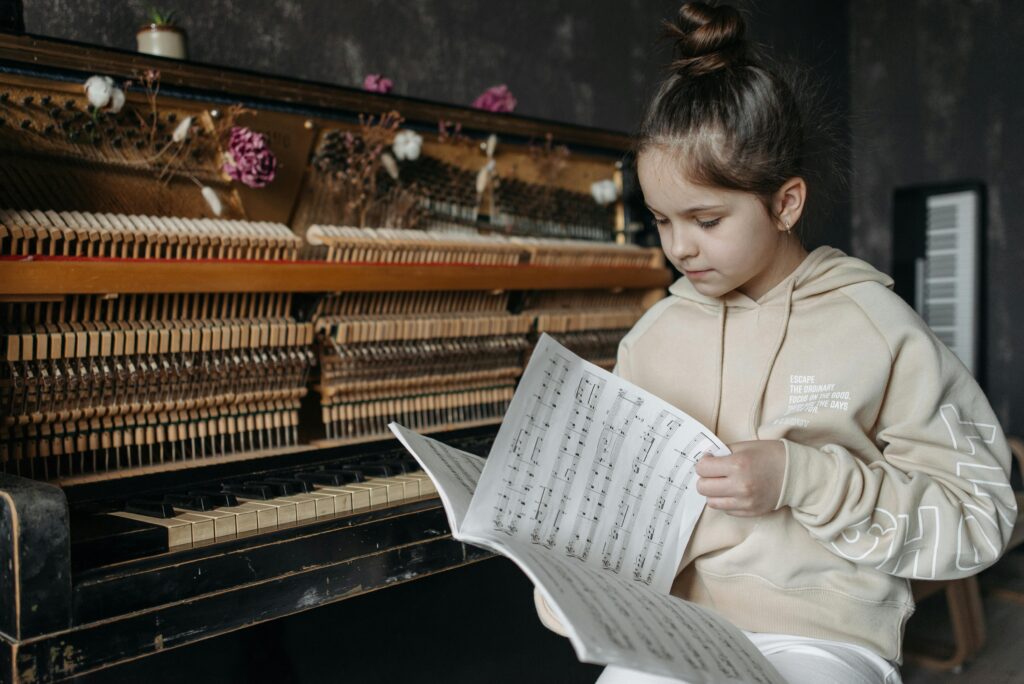Ready to turn your passion for music into a lifelong career? Europe offers some of the world’s most prestigious and innovative music production programs. From historic conservatories embracing modern technology to cutting-edge academies focused on electronic music. This list of the top music production schools in Europe will show you which institutions deliver world-class training, cutting-edge technology, and unparalleled networking opportunities.
Key Takeaways
- Specialized programs allow you to focus on specific genres or production techniques
- Location matters – cities like London, Berlin, and Paris offer vibrant music scenes that enhance your educational experience
- Balance between tradition and innovation is crucial when selecting a program
- Hands-on experience with professional-grade equipment separates top schools from the rest
- Networking opportunities often prove as valuable as technical skills
1. Royal College of Music (RCM) – United Kingdom
London’s Royal College of Music beautifully bridges tradition and innovation. Founded in 1882, this historic institution has seamlessly integrated modern production methods into its classical foundation. Students work with cutting-edge mixing consoles in acoustic-treated studios while also developing core skills in composition and orchestration.
- Why Choose RCM?
- Renowned Faculty: Award-winning composers, producers, and performance experts.
- World-Class Facilities: Acoustic-treated studios equipped with cutting-edge mixing consoles.
- Collaborative Environment: Opportunities to work with orchestras, ensembles, and vocalists on live projects.
- Industry Recognition: Alumni often find immediate placements in leading orchestras, studios, and creative media.
Degree Options:
- Bachelor of Music with production modules
- Postgraduate advanced diplomas in composition and recording arts
Fun Fact: London’s vibrant cultural scene offers endless inspiration—think on-campus recitals, off-campus gigs, and the bustling nightlife of Camden or Shoreditch!
2. Hochschule für Musik Hanns Eisler Berlin – Germany
Located in electronic music’s global capital, Hochschule für Musik Hanns Eisler embraces Berlin’s experimental spirit. While maintaining strong classical programs, the school has expanded into sound design, electronic composition, and advanced mixing techniques. This forward-thinking approach makes it perfect for producers seeking to push boundaries.
- Why Choose Hanns Eisler?
- Location: Berlin is a global capital for club culture, underground music, and experimentation.
- Expert Mentorship: Faculty members are active in renowned electronic and classical circles.
- State-of-the-Art Facilities: Studio labs loaded with professional recording gear, synthesizers, and modular systems.
- Cultural Fusion: Multi-genre collaborations bridging classical, techno, and everything in between.
Degree Options:
- Bachelor’s in Music focusing on composition and production
- Specialized master’s programs in avant-garde and contemporary music technology
Insider Tip: If you want to get into the local music scene, attend (and perform at) open jam sessions in Berlin’s countless underground venues.
3. Conservatoire National Supérieur de Musique et de Danse de Paris – France
Don’t let its classical reputation fool you – the CNSMDP stands at the forefront of digital sound innovation. With over two centuries of musical excellence, this Parisian conservatoire offers comprehensive sound engineering programs alongside traditional studies. Students explore live performance recording, orchestral mixing, and multimedia collaborations.
- Why Choose CNSMDP?
- Prestige and Heritage: Over two centuries of musical excellence.
- Balanced Curriculum: Classical foundations alongside pioneering music production courses.
- Networking Galore: Based in one of Europe’s major creative hubs—connect with filmmakers, dancers, and visual artists.
- High-Level Resources: Access to advanced software, analog mixing consoles, and specialized acoustic spaces.
Degree Options:
- Undergraduate and postgraduate degrees in music performance with production components
- Specialized programs in musical creation and new technologies
Why Paris? The city itself teems with creative energy—art galleries, film festivals, and an eclectic music scene that spans everything from jazz to electro-pop.
4. Abbey Road Institute – Multiple Locations (UK, France, Netherlands, Germany)
Few names carry more weight in recording history than Abbey Road. This institute, inspired by the legendary studios, offers contemporary curriculum in environments modeled after those famous recording rooms. With branches across major European cities, students experience industry-standard training with a historical pedigree.
- Why Choose Abbey Road Institute?
- Real-World Experience: Learn the ropes in studios modeled after Abbey Road’s famous recording rooms.
- Professional Instructors: Active engineers, producers, and sound designers at the helm.
- Compact Class Sizes: Individualized feedback and hands-on mentorship.
- Global Alumni Network: Connections in London, Paris, Berlin, and beyond.
Degree Options:
- Advanced Diploma in Music Production and Sound Engineering
- Short-term certificate programs for specialized skill development
Industry Snap: Abbey Road Institute often welcomes guest lecturers—Grammy winners and seasoned professionals—offering insider tips on everything from mixing fundamentals to client management.
ALSO: iZotope Ozone 11 Review
5. BIMM Institute – UK, Germany, Ireland
With campuses across multiple European countries, BIMM Institute has become a powerhouse for commercial music training. The school emphasizes contemporary edge with courses focused on pop, rock, EDM, and other mainstream genres. This makes it particularly appealing for producers targeting current industry trends.
- Why Choose BIMM?
- Contemporary Edge: Emphasis on pop, rock, EDM, and other mainstream music styles.
- Industry-Ready Skills: Curriculum designed around current music industry demands and streaming platforms.
- Collaborative Spirit: Team up with budding vocalists, guitarists, drummers, and band managers.
- Masterclasses & Workshops: Regular sessions led by prominent producers, DJs, and touring musicians.
Degree Options:
- BA (Hons) in Music Production
- MA in Popular Music Practice
Pro Tip: The Berlin campus grants direct access to the city’s electronic scene, making it an ideal spot for aspiring techno producers.
6. University of Agder – Norway
Located in southern Norway, the University of Agder (UiA) stands out for its Music Production degree that blends traditional academic rigor with cutting-edge creative practices. Their program emphasizes project-based learning, ensuring that students gain practical skills in audio engineering, composition, and live sound.
- Why Choose UiA?
- Comprehensive Curriculum: Core modules cover recording techniques, mixing, and advanced music production technologies.
- Interdisciplinary Opportunities: Collaborate with faculty and students in film, theatre, and digital arts.
- Research-Driven Environment: UiA invests in audio research, giving you the chance to contribute to emerging music tech.
- Rich Cultural Life: Norway’s vibrant music festivals and scenic surroundings offer endless inspiration.
Degree Options:
- Bachelor’s Degree in Music Production
- Master’s tracks for specialized research in music technology
Norwegian Flair: The scenic campus and emphasis on sustainability create a refreshing environment—perfect for creativity and innovation in audio production.
7. Point Blank Music School – London (and Global Campuses)
Point Blank Music School is famed for focusing specifically on modern electronic music, DJing, and digital audio workstation mastery. Founded in London, the school has expanded to multiple campuses—including Ibiza and online—allowing students worldwide to tap into a robust skill set for producing electronic, hip-hop, pop, and more.
- Why Choose Point Blank?
- DAW-Centric Courses: Deep dive into Ableton Live, Logic Pro, and Pro Tools.
- Industry Partnerships: Collaborations with major labels, radio stations, and festivals.
- Hands-On Learning: Practical exercises in mixing, remixing, and beatmaking from day one.
- Flexible Study Options: Full-time, part-time, and online programs to suit diverse schedules.
Degree Options:
- BA (Hons) in Music Production and Sound Engineering
- Specialized short courses in DJ performance, composition, and mastering
Highlight: Point Blank instructors include Grammy Award winners and touring DJs who bring real-time industry insights into the classroom.
8. SAE Institute – Multiple European Cities
With outposts in major European capitals—like London, Berlin, Amsterdam, and more—SAE Institute is one of the largest creative media educators, offering courses in music production, film, gaming, and web design. Their audio engineering programs have gained recognition for blending theory and practice in a hands-on studio environment.
- Why Choose SAE?
- Comprehensive Curriculum: Covers production, sound design, and business aspects of the music industry.
- Professional Studios: Access to professional hardware and software used by top producers.
- Global Network: Transfer options between international campuses and a thriving alumni community.
- Industry Partnerships: Internships and mentorships with leading studios and multimedia companies.
Degree Options:
- BA/BSc in Audio Production or Sound Engineering
- Advanced diplomas in electronic music and studio production
International Appeal: If you’re planning on relocating or traveling, SAE’s cross-campus policies allow for a seamless transition.
9. dBs Institute – UK and Germany
dBs Institute focuses on innovative sound programming, offering a variety of programs in music production, electronic music, and sound engineering. Their campuses in Bristol (UK) and Berlin (Germany) are iconic music hubs, ensuring students stay connected to a lively creative scene.
- Why Choose dBs?
- Small Class Sizes: Tailored feedback and significant one-on-one time with lecturers.
- Experimental Edge: Perfect for producers who want to push boundaries with experimental soundscapes.
- Modern Facilities: Fully equipped studios featuring analog and digital gear.
- Real-World Experience: Project-based learning culminating in a professional portfolio.
Degree Options:
- BA (Hons) in Music Production & Sound Engineering
- Specialty diplomas focusing on electronic music, composition, or sound design
Local Vibe: Both Berlin and Bristol boast thriving underground music scenes, ideal for testing experimental productions on live audiences.
10. University of West London – London College of Music (LCM)
The London College of Music is part of the University of West London, offering music production programs that unite traditional musical techniques with industry-relevant skills. With extensive resources for songwriting, recording, and performance, LCM nurtures creative versatility—vital in today’s music marketplace.
- Why Choose LCM?
- Diverse Curriculum: Explore everything from pop production to classical orchestration.
- Professional-Grade Studios: Networked Mac labs, analog consoles, and fully treated acoustics.
- Dedicated Career Support: Workshops, job fairs, and industry panel discussions for emerging graduates.
- Performance Integration: Collaborate with peers in performance, musical theatre, and film composition.
Degree Options:
- BA (Hons) in Music Technology (Production)
- Master’s programs in Music Performance, Composition, and Production
Student Perk: The campus is located near vibrant neighborhoods, granting easy access to cultural hotspots and potential gig venues.
Conclusion
The top music production schools in Europe offer unique strengths for every aspiring producer. Whether you prefer a classical conservatory like the Royal College of Music, a tech-driven campus like Point Blank, or something in between, finding your perfect match requires careful consideration of curriculum, faculty expertise, and location.
Consider what environment will best nurture your creative vision. Perhaps you’ll thrive in Berlin’s electronic music hotbed or find inspiration in Norway’s scenic landscapes. Research course structures thoroughly and connect with alumni when possible.
Most importantly, approach your education with openness to exploration and experimentation. The most successful producers combine technical mastery with creative boundary-pushing. With the right institution supporting your journey, you’ll develop both the skills and connections to make your mark on the fascinating world of sound.





